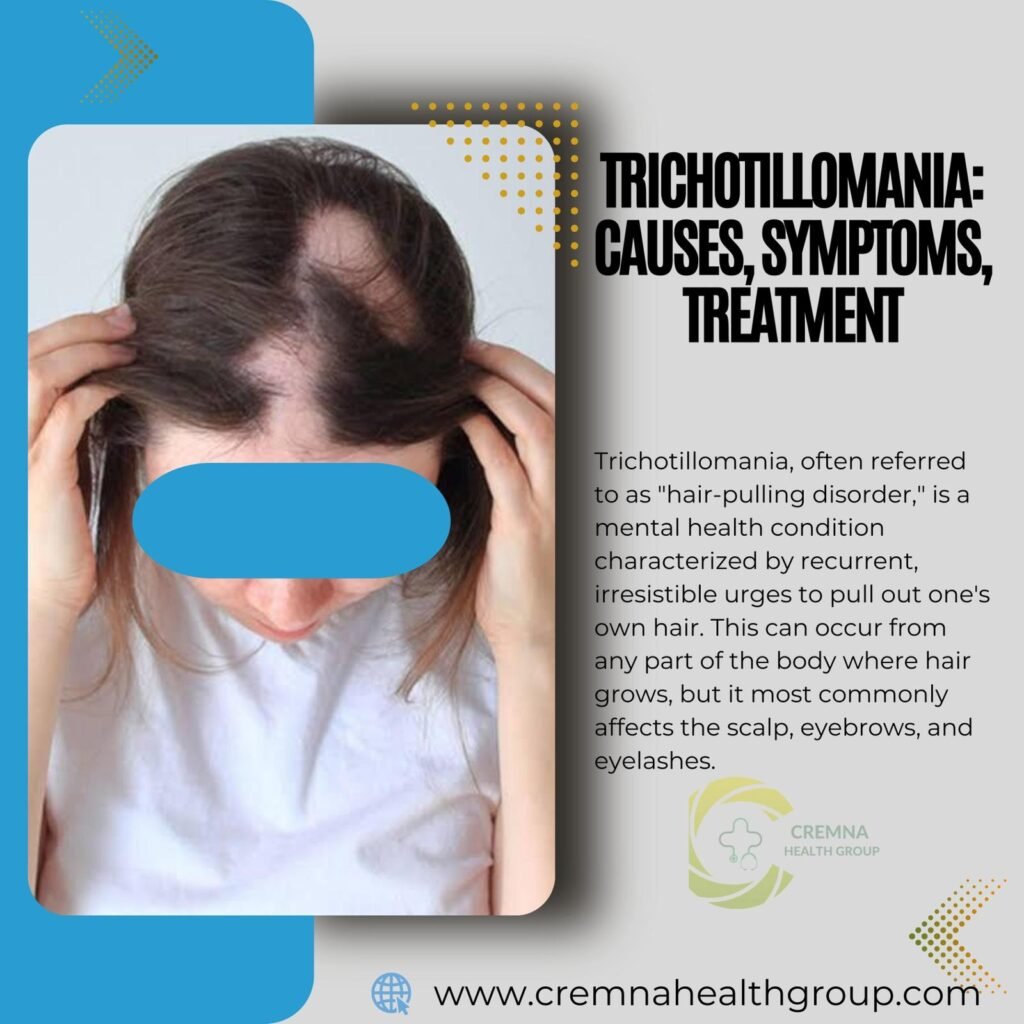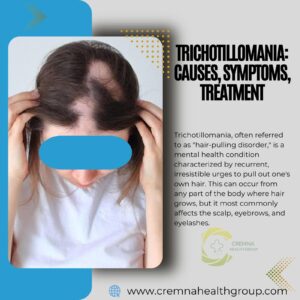
Hair Transplant Antalya
Introduction Hair loss is a common concern for many in the UK — and so is the rising cost of hair restoration treatments. If you’ve

Trichotillomania, often referred to as “hair-pulling disorder,” is a mental health condition characterized by recurrent, irresistible urges to pull out one’s own hair. This can occur from any part of the body where hair grows, but it most commonly affects the scalp, eyebrows, and eyelashes.
Causes:
The exact cause of trichotillomania is not fully understood, but it is believed to be a complex interplay of genetic, environmental, and psychological factors. Some potential contributing factors include:
Genetics: There may be a genetic predisposition to impulse control disorders like trichotillomania.
Brain Chemistry: Imbalances in neurotransmitters, which are chemicals that transmit signals in the brain, may play a role.
Stress and Emotional Triggers: Trichotillomania often occurs in response to stress, anxiety, boredom, or other emotional states.
Coping Mechanism: For some individuals, hair pulling provides a temporary sense of relief or distraction from emotional discomfort.
Symptoms:
The main symptom of trichotillomania is the recurrent pulling out of one’s own hair, leading to noticeable hair loss. This can occur from any part of the body where hair grows, but is most commonly seen on the scalp, eyebrows, and eyelashes. Other symptoms may include:
Tension or Urge Before Pulling: Many individuals with trichotillomania experience a growing sense of tension or a specific urge just before pulling out their hair.
Sense of Relief or Gratification: Pulling out hair may be followed by a feeling of relief or satisfaction, but it is often accompanied by guilt, shame, or distress.
Irregular Hair Growth Patterns: Due to repeated pulling, individuals may have irregular hair growth patterns or bald spots.
Complications: In severe cases, trichotillomania can lead to skin irritation, infections, or complications related to ingesting hair.
Treatment:
Treatment for trichotillomania typically involves a combination of therapeutic approaches:
Cognitive-Behavioral Therapy (CBT): This is often the first-line treatment. It helps individuals identify and change negative thought patterns and behaviors associated with hair pulling.
Habit Reversal Training (HRT): This therapy focuses on teaching individuals alternative behaviors to replace hair pulling.
Medication: In some cases, medications like selective serotonin reuptake inhibitors (SSRIs) may be prescribed to address underlying emotional or psychological factors.
Support Groups: Joining a support group with others who have trichotillomania can provide a sense of community and shared understanding.
Stress Management Techniques: Learning and practicing relaxation techniques, such as deep breathing or mindfulness meditation, can help reduce triggers.

Introduction Hair loss is a common concern for many in the UK — and so is the rising cost of hair restoration treatments. If you’ve

Hair Transplant Antalya: Affordable, Advanced, and Trusted Introduction: Hair Transplant Antalya! Antalya has emerged as one of the most popular hair transplant locations in recent

All About Trichotillomania: Causes, Symptoms, Treatment Trichotillomania, often referred to as “hair-pulling disorder,” is a mental health condition characterized by recurrent, irresistible urges to pull

Table of Contents All About Dandruff: Causes, Symptoms, Treatment Causes: Dandruff is primarily caused by a combination of factors, including: Fungal Overgrowth: The most common

Table of Contents Introduction:Eczema, a common skin condition that affects millions of people worldwide, Eczema can be both frustrating and discomforting. Understanding its causes, identifying

In the world of fashion and beauty that’s always changing, a really popular way to give yourself a new look is by changing the color
Cremnahealthgroup@gmail.com
+905455419206
10 / Sirinyali Cd. Muratapasa Antalya, Turkey